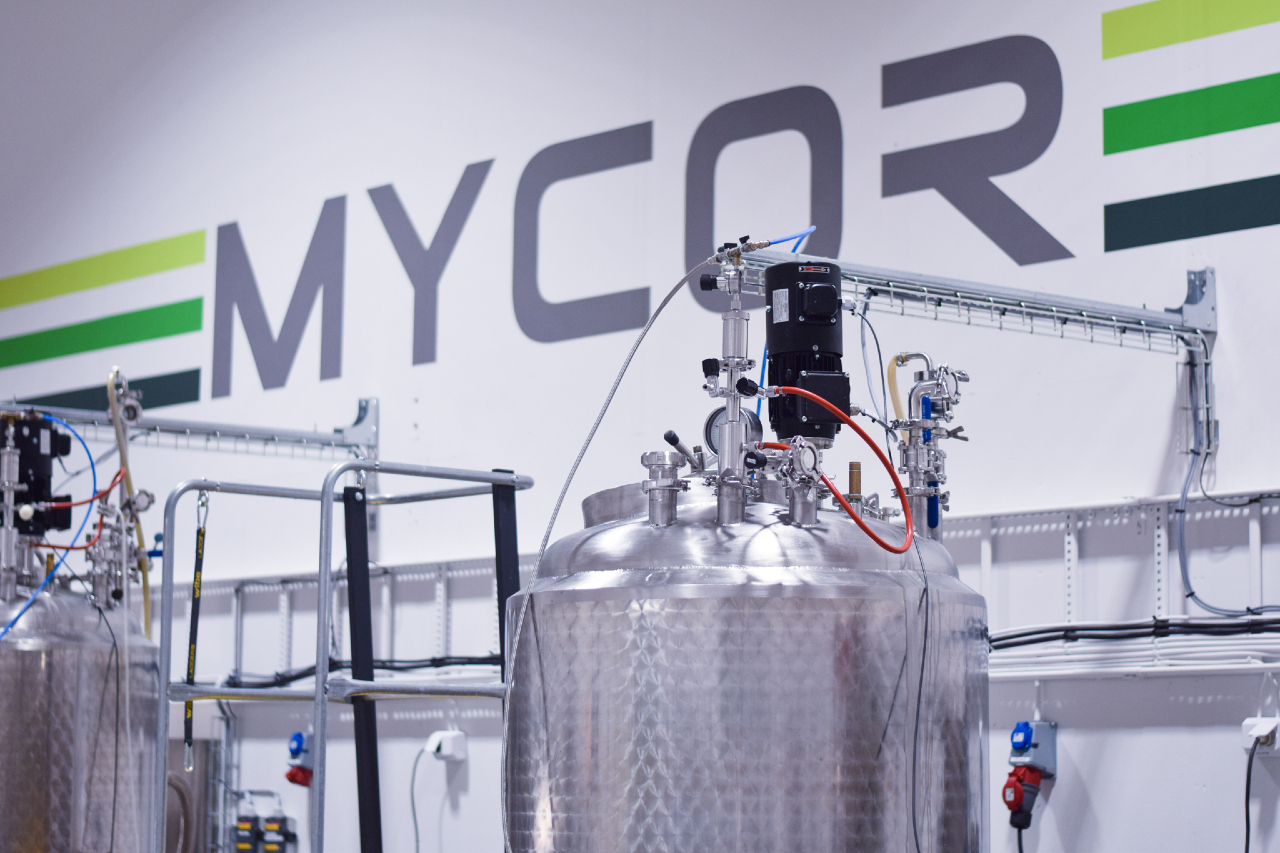The Protein SHIFT – From Ancient Wooden Barrels to Stainless Steel Tanks
Anton Johansson works as the CFO at Mycorena. Founded in 2017, this Swedish startup is on a mission to be the world’s leading brand for fungi-based products made possible through biotechnology.
In case you have been living all detached from the world of digital communications, spending your time in the absolute wilderness of nature, living at the mercy of greens and berries, with absolutely no interest in knowing what is going on around in the world of socially civilized food, let me take this opportunity to make something clear for you – the term FoodTech is kind of a big deal right now. News, discussions, and happenings around the future of cuisine are all over the place. Surely, even those uninterested have received at least fragments of information about Beyond Meat’s landmark 2019 IPO, the purchase of very expensive Super Bowl ad space by some oat cult leader, and that lab-grown meat apparently is a thing now.
In mainstream media, the narrative is dominated by top stories around consumer-facing novelties. You find Oprah Winfrey’s investment in Oatly, the EU’s indecisiveness on whether the word ‘burger’ may be used in marketing of plant-based foods, and a gazillion news pieces about eGrocers. The investment landscape looks virtually the same. According to a recent report on the FoodTech investment landscape of 2020, firms in the Meal Kits & Delivery and E-Commerce categories raised more money than all other sub sectors combined.
In mainstream media, the narrative is dominated by top stories around consumer-facing novelties.
Call me pessimistic, but I feel that the FoodTech space doesn’t get half the attention that it deserves. We are talking about an area that pushes the boundaries of virtually every technological field, from molecular biology to machine learning and materials science. So why is it that people seem to care more about shopping apps? How can each launch of a meal delivery service generate more hype than its latest predecessor, even if you’d struggle to tell the difference? For how long can the public’s interest stay elevated for today’s minor iteration of yesterday’s plant-based sausage?

You may now feel that this piece’s only purpose is to bash media and global venture capitalism. I can’t blame you but must inform you that you are (mostly) mistaken. I am merely trying to draw a picture of the status quo. No one, in particular, can be blamed for this, and it is not very surprising either:
- Consumers, of which many are of course journalists and venture capitalists, care more intimately about issues that pertain directly to them.
- The average Joe “gets” new burgers, and the same can definitely not be said about recent advances in synthetic biology.
- Digitalisation is progressing more rapidly than ever, yet at a slower rate than it ever will, meaning that apps and e-services grow increasingly hot.
The implication of this is that most of the attention (and cash) in FoodTech is directed towards solutions that lie far downstream in the value chain. The upstream struggles to gain a space in the spotlight.
This cannot be the case for much longer if we are to reach our common ambitious goals pertaining to food. Minor progress will not be enough to feed ten billion people by 2050 while keeping the environment safe. Radical innovations will be necessary, especially within the realm of the upstream. To achieve this, we need to seriously rethink what we fundamentally eat and how it is produced.
Minor progress will not be enough to feed ten billion people by 2050 while keeping the environment safe.
For protein, this realignment will constitute a shift from the status quo of plants – to microbes in the medium term, and in vitro meat in the longer term. This will be the most groundbreaking advancement in global food since the domestication of crops. For the first time in history, global protein supply can be made independent of macro-organisms. By harnessing the power of micro-organisms and the cultivation of individual cells, we will be able to directly target the production of protein, bypassing all of the unnecessary. Protein manufacturing will be made more scalable, efficient, and fast than ever before.
For the first time in history, global protein supply can be made independent of macro-organisms.
Counterintuitively, this quantum leap will rely on an ancient food processing method. Fermentation science has lately become revitalized, making business activity as well as investments spike. More than 50 companies worldwide are now working on fermentation-enabled proteins, and they raised half a billion Euros in 2020. The industry is rallying to turn microbes into the best possible replacements for meat. Once these novel options reach full parity with animal-based proteins, the previously referenced massive shift will be in full swing. And it might not take very long. A well-cited report predicts that microbial proteins will reach cost parity with meat while having realistic taste and texture by 2025.

It is ironic that the biggest leap in the history of FoodTech will rely on one of its oldest techniques. Still, with the application of novel technologies within biotechnology, fermentation can soar higher than ever before. I will not attempt to say for sure when journalists and venture capitalists will jump on the bandwagon, but I doubt that it will take very long.
If you have got any interest in knowing more about how fermentation is driving the transformation of a future-proofed sustainable food system, follow Mycorena blog series at https://mycorena.com/mycotalks.
Anton Johansson, CFO, Mycorena
SHIFT Business Festival
25-26 August 2021




Sisällön yhteydessä voidaan näyttää sosiaalisessa mediassa julkaistuja sisältöjä. Sosiaalisen median palvelut (esim. Facebook, Instagram, X ja YouTube) voivat hyödyntää evästeillä kerättyjä tietoja omassa käytössään. Näitä kohteita käytetään sinulle ja sinun etuihisi liittyvän mainonnan toimittamiseen. Lisäksi näitä evästeitä voidaan käyttää mittaamaan mainoskampanjoiden tehokkuutta. Mainosverkostot sijoittavat ne yleensä verkkosivuston ylläpitäjän luvalla.